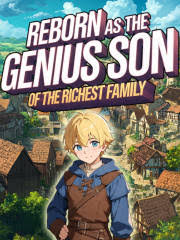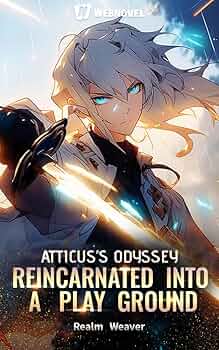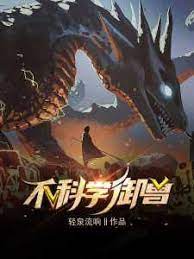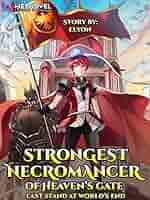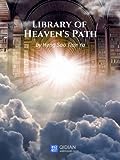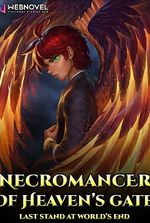The Story in 3 Sentences
An ordinary man meets an untimely end and is granted a second chance by a deity, reborn as Michael Vanderbilt, the youngest genius heir of the unimaginably wealthy Vanderbilt dynasty in a medieval fantasy realm.
He leverages his modern knowledge and innate talents to revolutionize magic, technology, and commerce, shifting from a life of expected luxury to one of active creation and kingdom-building, establishing his own company and influence.
His journey directs him from personal validation and wealth consolidation towards navigating complex alliances and pocket dimensions, ultimately shaping the world’s power structures and securing his legacy far beyond his inherited fortune.
Why It Stands Out
1. The Modern Mind in a Medieval Cauldron
Michael doesn’t just adapt; he disrupts. His introduction of modern economic principles, technological concepts like plumbing and electricity, and systematic approaches to magic and business into a stagnant fantasy world creates a uniquely satisfying narrative of progress. It’s less about brute force and more about the thrilling application of intellect to reshape an entire society’s foundations, turning every chapter into a lesson in applied genius.
2. The Unapologetic Power Fantasy, Polished
This novel embraces the wish-fulfillment core of its genre but elevates it with consistent internal logic and a protagonist whose power stems from earned skill and cleverness, not just divine handouts. Michael’s journey from reborn infant to a self-made titan within his gilded cage offers a potent mix of luxury and ambition. The story stands out by making the reader genuinely believe in the protagonist’s unparalleled competence and enjoy the frictionless path to success without demanding gritty realism.
3. A World Built on Wealth and Whimsy
The setting isn’t just a backdrop; it’s a character defined by absurd, almost cartoonish levels of opulence and the unique problems it creates. From pocket dimensions used as personal storage for auction items to sprawling metropolises funded by bottomless coffers, the world-building leans into the fantastical implications of ultimate wealth. This creates a consistently entertaining and visually rich environment where the stakes are about legacy and innovation, not mere survival.
Characters That Leave a Mark
There’s Barnaby – a figure of immense, almost incomprehensible wealth whose mastery over pocket dimensions hints at a power far beyond conventional magic, serving as a benchmark for the world’s hidden depths and potential.
You’ll meet Yuna Kim, who was reborn into the prestigious Montgomery family roughly a year after Michael, carrying forward the exceptional coordination from her past life as a K-pop star to master the Way of the Rapier and earn the title of a “once-in-a-million genius”.
And Sheina? She’s the one who, as a capable Dragonborn, represents Michael’s Reborn company in Orcus Town, displaying poise and leadership by being the sole delegate able to address the locals and symbolize the expanding reach of his enterprise.
The Flaws Fans Debate
The narrative’s biggest strength—Michael’s effortless success—can feel like its biggest weakness, creating a story where conflict is minimal and victories are preordained, lacking genuine tension or formidable opposition.
The author’s handling of economic systems and currency within the fantasy world is frequently cited as unrealistic or poorly conceived, breaking immersion for readers who expect a more grounded internal logic despite the fantastical setting.
The sheer scale of the protagonist’s wealth and talent can make the world feel small and the challenges insignificant, leading to a sense of narrative stagnation where problems are solved too easily, diminishing the impact of his achievements.
Must-Experience Arcs
Ch. 1–50: The Rebirth and Foundation Arc – Michael awakens to his new life, assesses his surroundings, and begins his first experiments, laying the groundwork for his future empire by understanding magic and the world’s technological backwardness.
Ch. 300–400: The Metropolis and Kingdom Building Arc – Focusing on large-scale development, this arc sees Michael actively shaping cities and economies, introducing modern infrastructure and solidifying his power base, marking the peak of his world-altering ambitions.
Ch. 600–700: The Pocket Dimension and Legacy Arc – Michael delves into the mysteries of space manipulation and vast wealth storage, confronting challenges that test the limits of his resources and intellect, as he secures his family’s future and cements his place in the world’s history.
Killer Quotes
“He might have been born into the richest family in the world, but even the Kings and Queens were living like peasants compared to normal people in the modern world.”
“These cursed chains weren’t something I could slip out of. They were meant to be broken with strength.”
Cultural Impact
The novel has cultivated a dedicated fanbase that particularly celebrates the “Metropolis Arc” as a high point, often discussing Michael’s engineering and economic feats in online forums.
It has become a reference point in the genre for the “overpowered, wealthy reincarnate” trope, praised for its smooth, enjoyable power fantasy and consistent updates that keep readers engaged.
Fans frequently highlight the unique blend of modern tech and medieval fantasy as a standout feature, sparking discussions and memes about what modern convenience they would introduce in a similar situation.
Final Verdict
Start Here If You Want:
A pure, unadulterated power fantasy where the genius protagonist wins effortlessly.
To experience the satisfying thrill of modern innovation reshaping a magical world.
A long, complete story focused on wealth, legacy, and intellectual triumph over physical conflict.
Study If You Love:
Protagonists who are strategic masterminds and economic wizards.
Worlds defined by extravagant wealth and the unique problems it solves and creates.
The isekai/reincarnation genre with a heavy emphasis on comfort, luxury, and zero survival angst.
Avoid If You Prefer:
Stories with high stakes, genuine peril, and formidable villains who pose real threats.
Narratives with complex, gritty economic or political systems that adhere to realism.
Character-driven plots where growth comes from overcoming failure and deep interpersonal conflict.
